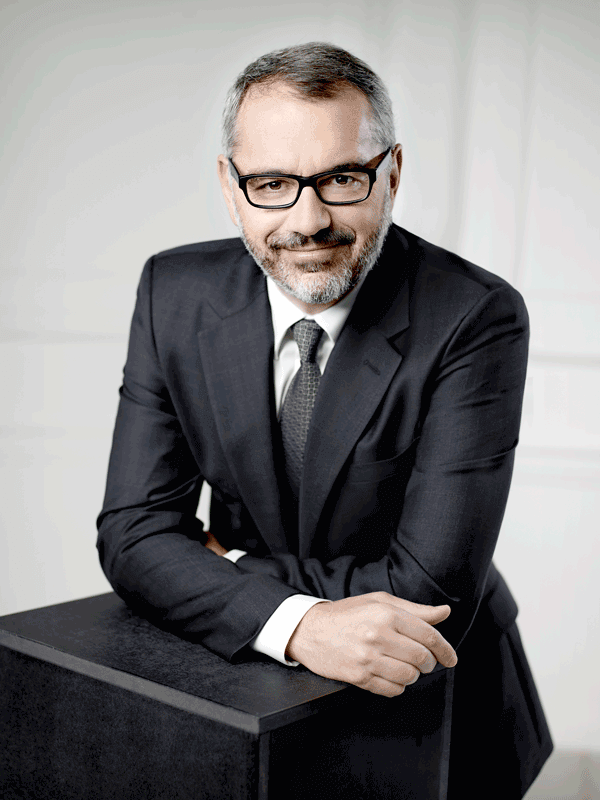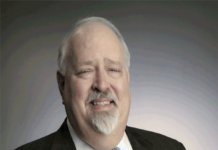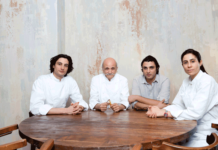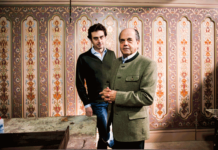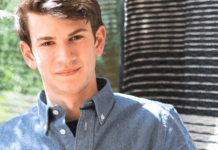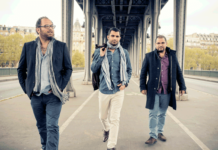In 1914, entrepreneur Antonio Puig Castellò founded a small importing business in Barcelona, Spain. After a hundred years of expansion and innovation, his grandchildren now run the international luxury conglomerate that is at once a fashion company and a producer of fragrances, beauty products and scents.
In the past decade, the Puig family business has witnessed what can only be described as exponential growth. In 2014, the company celebrated its centennial by inaugurating its new headquarters in the heart of Barcelona – an elegant 23-storey building designed by famed architect and Pritzker Prize winner Rafael Moneo. With over 4000 employees, of whom 40% are employed in Spain, Puig now sells its products in over 140 countries.
Marc Puig, of the third generation, started his career in the family business in 1986 as a commercial sales representative. With a degree in industrial engineering and an MBA from Harvard University as a Fulbright fellow, Marc rose swiftly through the ranks, becoming the Director of Research and Development and, a few years later, the President of Puig, USA. In 2000, he went on to become the Chairman of the Board of Carolina Herrera, followed by the President of the fashion division. In an interview with Tharawat magazine, Marc Puig, now the Chairman and CEO of Puig, spoke to us of the family business history, the training of the next generation, and of a family’s love for fragrances.
[ms-protect-content id=”4069, 4129″]
How many of your family members are currently involved in the business, and why are you so passionate about the family legacy?
Two family members are currently active in the company – my cousin Manuel, as Vice-Chairman, and myself, as Chairman and CEO.
What makes us passionate? When you run a family business, the goal is to take the reins from the previous generation, make the business grow, and then hand it over to the next generation. In this sense, Manuel and I are both part of the legacy and, at the same time, we cultivate it and allow it to grow.
What are the three most pivotal moments in the Puig family business history?
If I had to point out the three of the most significant and symbolic moments of Puig history, the first would be from 1936 to 1939, during the Spanish Civil War. At that time, my grandfather was unable to import goods due to trade restrictions. As a result, he decided to produce his own products using raw materials available in Spain. This is how Agua Lavanda was born. This particular fragrance was a huge and lasting success and became an instant classic. Its birth established our company as a contender in the world of fragrance.
The next significant moment was in the beginning of the 60s, when the second generation bet on design, creativity and French brands to expand the business and earn a reputation outside of Spain. During this notable period, the company began to work with the designer André Ricard to develop impactful packaging, and also met with the French designer Paco Rabanne to launch his first fragrance, Calandre, on the international market in 1969.
The third moment is more recent. In 2004, we were facing some difficulties and decided to revise our very large portfolio, which included cosmetics, soaps and shampoos. We chose to focus on what we do best, what we are experts in, which is fashion and fragrance. As of that moment, we settled on a hybrid model that consists of a combination of owned brands, such as Carolina Herrera, Nina Ricci, Paco Rabanne and Jean Paul Gaultier, licenses, such as Prada, Valentino and Comme des Garçons, and celebrity fragrances.
How did you go about integrating family values into company strategy? Was the family consciously involved in this process?
I believe that when you have a family with strong values and Mediterranean roots, the family passes on these values to the company. Unconsciously, in an organic way, personal values are carried through to the company’s savoir-faire.
When it comes to the business, what does the word ‘ownership’ mean to you and your family?
I would say that it is not about ownership. We are not entitled to the business, we are just stewards. We take what we have inherited and pass it on to the next generation.
Very often family firms do not make it beyond the third generation, failing at the point of succession. How are you preparing the next generation?
In order to prepare the company for the upcoming generation, we have implemented a system of governance in which the number of active family members and family power is limited, so to avoid walking into the usual traps of succession. Besides that, we are also trying to ensure that the next generation is not only aware of its rights, but is also aware of its obligations towards the company.
What is the greatest challenge you currently face in your industry, and where do opportunities lie?
In a landscape that is still under construction, you have two options: either you choose to become a “niche” or you become a giant. Otherwise, you take the risk of becoming irrelevant or of disappearing. We have chosen to reach a critical mass and, in order to succeed, we have decided to maintain the activities we are really good at, in which we are stronger than others.
You invest heavily in R&D. Why is this so prominent on your agenda, and how can it benefit future generations?
Indeed, we do invest in innovation, creativity, and design. This is part of the strategy that led to Puig becoming a leading contender in our industry. Actually, I truly believe that if you are able to move people, to allow consumers to dream with new and exciting products, you can look to the future with confidence. To achieve that, innovation, creativity, and design are essential.
You have acquired leading brands like Nina Ricci and Carolina Herrera. How do you preserve a brand’s identity while allowing it to benefit from a greater structure, such as Puig?
In our business model, each fashion house or brand is independent and draws its own path in a very precise and concise way. It is crucial that each brand maintains, breathes and cultivates its own identity. Puig, as a company, only serves as an umbrella in areas in which brand DNA is not endangered, and in which processes are solid and very useful, such as Human Resources and Information Technology.
After 100 years and the fantastic size you have reached, do you believe that the fact that you are still family-owned constitutes a competitive advantage?
Family businesses bring advantages and disadvantages at the same time. As a consequence, we try to emphasise advantages and minimize risks.
You emphasise the benefits of ‘story-telling’ to business. Where does this conviction come from, and how does it translate into the way you do business?
I remember an anecdote in late 2004, when we were approaching the holiday season. On the radio, a guy said he was hoping that his aunt would not gift him another fragrance. I got goose bumps. I realised that we had lost the ability to excite consumers, that they were treating fragrances as commodities. At that moment, it was essential to bring back the idea of telling a story so that people could dream again. Indeed, a very effective way to move people is to tell them a story that evokes emotions and makes them feel a special connection to the brand and product.
Does family ownership matter to you in the future, or would you consider a different scenario?
As long as family ownership represents an advantage, we will keep on going.
Tharawat Magazine, Issue 25, 2015
[/ms-protect-content]


